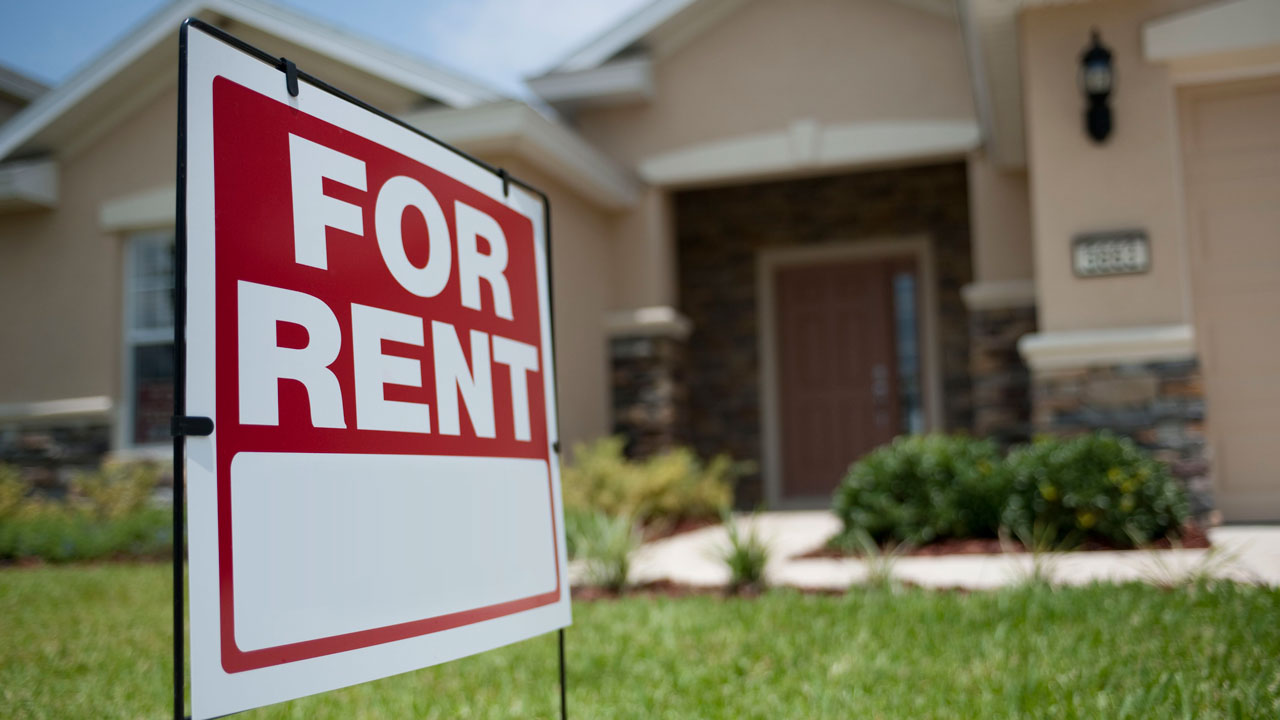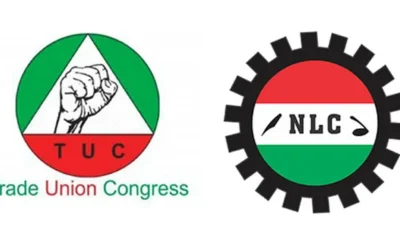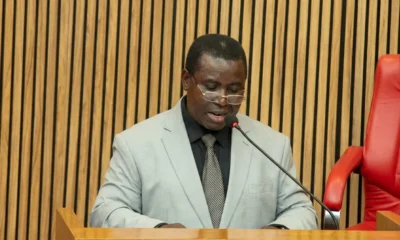News
House rent hike agony spreads

-
Worsening citizens’ economic woes
-
90% hike reported in Lagos, Enugu, others
Worsening insecurity is not the only horror Nigerians are contending with. Across the country, a rent tremor is ravaging families, small businesses and workers already reeling from inflation, fuel costs and stagnant wages.
What was once a routine housing payment has turned into a national crisis, with rent increases ranging from 50 to 90 per cent across major cities.
The nightmare has forced millions of citizens to relocate, downgrade or simply default and wait for the worst from landlords.
Many are in court, praying for some legal succour.
In Lagos, Nigeria’s commercial nerve centre, residents lament that rent for both residential and commercial spaces has gone berserk.
A recent market survey shows that rents for flats and shops have soared by over 90 per cent in some districts within a year.
At Century, Ago Palace Way, a three-bedroom flat that rented for N700,000 late last year was hiked to N2.5 million before settling at N1.5 million after desperate negotiation. That is more than a 100% increase. Similarly, at Grandmates bus stop, around Isolo, a shop once priced at N400,000 now commands N1.5 million, with landlords refusing to negotiate.
For Lagosians, this is not an isolated story but a new normal. “Most agents deliberately raise rent so they can collect higher commissions,” lamented Dr. Osita Ndubuoke, a landlord in Amuwo-Odofin.
He continued: “They exploit the desperation of tenants. The presence of wealthy politicians and ‘Yahoo Boys’ who can pay any amount has distorted the market. Now that many have lost money or influence, rent defaults are rising.”
Ndubuoke said some areas have seen rents jump by 300 per cent, leaving middle-class earners stranded. He also blamed demolitions of illegal buildings for worsening the shortage.
“Too many people are chasing too few houses,” he added.
Indeed, Lagos has witnessed sweeping demolitions across Oworonsoki, Lekki and other zones, as the government reclaims drainage channels. Each demolition wipes out hundreds of rental units, pushing displaced residents to fringe areas or neighbouring Ogun State.
The Lagos State Government acknowledges the crisis. Commissioner for Housing, Moruf Akinderu-Fatai, recently reiterated plans to enforce a flexible rent system that allows tenants to pay monthly, quarterly, or yearly, instead of the punishing one- or two-year lump sums that have become the norm.
“The interest of citizens must be considered in fixing the cost of renting,” he said during a meeting with the Estate, Rent and Commission Agents Association of Nigeria (ERCAAN).
He reminded agents that Lagos law caps agency fees at 10 per cent of total rent and warned against exploitative practices.
His colleague, Barakat Odunuga-Bakare, the Special Adviser on Housing, added: “The goal is to protect tenants and landlords alike while promoting transparency and affordability.”
Yet, for all the talk, market forces remain unyielding. Mr. Godwin Alenkhe, National President of ERCAAN, described the rent surge as “abnormal,” blaming it on weak oversight and runaway construction costs. “Everyone pegs rent at whatever they want,” he said. “The government must subsidise building materials and invest directly in low-cost housing. Only then will prices come down.”
The problem is not limited to Lagos. In Abuja, Port Harcourt, Kano, Enugu Kaduna and others, similar stories abound.
In Enugu, the rapid urban renewal drive of the government has attracted more local and offshore investors who are aggressively buying properties, thus forcing the prices to shoot up as demand increases.
Ukandu Gabriel, an Enugu resident said: “Rental and outright purchase has doubled, if not tripled. When you are negotiating with an agent to rent a property, make sure your money is intact. Otherwise, before you revert, it’s gone.
People are eating once a day just to pay rent”, he lamented.
According to data compiled by real estate experts: In Lagos, one-bedroom flats that went for ₦2.5 million in 2024 now attract as much as ₦8 million in 2025, depending on area and furnishing.
Two-bedroom units that sold for ₦8 million have jumped to ₦45 million, while three-bedrooms now go for up to ₦100 million in prime locations.
In Abuja, a two-bedroom flat that rented for between ₦3 million and ₦10 million last year now ranges up to ₦20 million, especially in Maitama and Asokoro.
Port Harcourt’s prices have risen by about 25 per cent, with one-bedroom flats now selling at ₦30 million, and three-bedrooms up to ₦65 million.
In Ogun State, one-bedroom apartments that sold for ₦12.5 million in 2024 now fetch ₦16 million; two-bedrooms climbed from ₦35–₦40 million to ₦45 million in 2025.
Enugu and Kaduna recorded increases of up to 90 per cent, with two-bedroom flats that sold for ₦60 million last year now priced above ₦100 million.
In Abuja’s developing districts like Lugbe, three-bedroom apartments that cost ₦115 million in 2024 now sell for ₦325 million.
Across board, property sales and rentals have become speculative investments, a hedge against naira depreciation, rather than a reflection of real demand.
Industry experts trace the surge to a combination of macroeconomic and structural pressures: Inflation, now hovering above 30%, has spiked cement and iron rod prices severalfold.
The naira’s depreciation against the dollar has made imported building materials unaffordable.
Demolitions have reduced housing stock, while insecurity in the north discourages new construction.
A lack of effective rent control legislation allows landlords to set arbitrary rates.
Dr. Ezekiel Chikadibia, a property developer in Amuwo-Odofin, noted that “the cost of constructing a one-bedroom flat rose from ₦75 million in 2024 to over ₦100 million in 2025.
For two bedrooms, it’s now ₦250 million, and three bedrooms ₦348 million, depending on the area. Builders are simply passing the cost to tenants.”
He added that the 2023 election cycle, which flooded the economy with cash, and subsequent exchange rate volatility accelerated inflation in the real estate sector. “As long as materials remain expensive and the naira weak, rent will keep rising,” he warned.
Behind the numbers lie broken families and displaced communities. Tenants in Lagos, Abuja and Port Harcourt told Daily Sun of abandoning apartments after rent increases of 70–100%.
In Surulere, a young civil servant said: “The price of a roof is climbing faster than my salary. I had to move my family to Mowe (Ogun State) and now spend four hours daily in traffic.”
Others report cutting food, school and healthcare expenses just to pay rent. The result is rising urban poverty, overcrowded flats, and the quiet spread of homelessness, especially among low-income earners and single mothers.
Experts and policymakers agree that urgent action is needed. Urban planners recommend a “portfolio approach”:
Mass affordable housing through public–private partnerships and rent-to-own models.
Tax incentives for developers who build low-cost homes.
Rental assistance programmes for the poorest households.
Stronger tenancy laws to cap annual increases (for example, 20% limit proposals before the National Assembly).
Better data and property registration to expose speculative pricing and curb illegal practices.
ERCAAN also advocates for professionalising real estate practice to eliminate quacks who inflate prices. “We must confront agents who exploit the system,” Alenkhe insisted.
Analysts say without deep mortgage reform and access to long-term finance, developers will continue to front-load costs into rent, perpetuating the cycle of unaffordability.
Nigeria’s housing deficit, estimated at over 28 million units, is a ticking social bomb. Lagos alone needs at least 3 million additional homes to stabilise its market. Yet, less than 10% of Nigerians can access mortgage financing, and only a fraction of housing policies have been fully implemented.
As housing economist Tunde Ayeni observed, “The rent crisis is a mirror of Nigeria’s economic dysfunction. When the currency collapses and inflation is unanchored, housing becomes a casualty.”
Unless urgent steps are taken, the rent crisis could spiral into a full-blown social problem, deepening inequality, worsening migration and eroding urban productivity.
For now, the average Nigerian tenant is trapped between stagnant income and a landlord’s demand note. (The Sun)
-

 Politics9 hours ago
Politics9 hours agoFintiri Set To Defect As Speaker, 13 Assembly Members Dump PDP
-

 News9 hours ago
News9 hours agoContinue With What We’ve Been Doing Together – Egbetokun Tells Successor
-

 News9 hours ago
News9 hours agoDSS Releases Walida
-

 News9 hours ago
News9 hours agoDisu declares total war on police corruption, impunity
-

 News9 hours ago
News9 hours agoWage arrears: Labour issues Friday ultimatum to FG
-

 Business6 hours ago
Business6 hours agoNigerian-American billionaire Adebayo Ogunlesi bids for Eni stake in Nigeria’s Renaissance JV
-

 News8 hours ago
News8 hours agoBoko Haram Attack Adamawa Communities Claims Life Of Village Head, 17 Others
-

 Politics7 hours ago
Politics7 hours agoINEC reviews timetable, APC consolidates as 2027 race begins


















